Josep Samitier and Núria Montserrat at the “Engineering and Manufacture of Living Systems” workshop in China
 Last 9-11th of October took place in Beijing the workshop on “Engineering and Manufacture of Living Systems”. The aim of the workshop was to bring together multi-disciplinary researchers to review the latest advances and discuss the future directions in the design and manufacture of engineered living systems, and their integration amongst the researchers gathered at this international workshop.
Last 9-11th of October took place in Beijing the workshop on “Engineering and Manufacture of Living Systems”. The aim of the workshop was to bring together multi-disciplinary researchers to review the latest advances and discuss the future directions in the design and manufacture of engineered living systems, and their integration amongst the researchers gathered at this international workshop.
The major topics discussed during the workshop were: to consider issues related to translation of engineered living systems from the laboratory to the clinic and to industry, review enabling and emerging techniques for using pluripotent cells from various sources such as cell spheroids, organoids and organs-on-a-chip, discuss the ethical, societal and regulatory issues associated with the development and manufacture of engineered living systems and envision future research, development and synergies at the integration and interface of biomanufacturing and engineering living systems amongst others. The meeting was organised by Tsinghua University and the Massachusetts Institute of Technology.

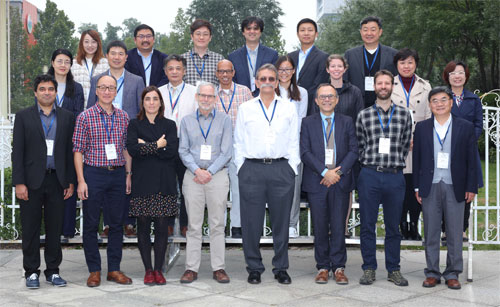
 Last 9-11th of October took place in Beijing the workshop on “Engineering and Manufacture of Living Systems”. The aim of the workshop was to bring together multi-disciplinary researchers to review the latest advances and discuss the future directions in the design and manufacture of engineered living systems, and their integration amongst the researchers gathered at this international workshop.
Last 9-11th of October took place in Beijing the workshop on “Engineering and Manufacture of Living Systems”. The aim of the workshop was to bring together multi-disciplinary researchers to review the latest advances and discuss the future directions in the design and manufacture of engineered living systems, and their integration amongst the researchers gathered at this international workshop. 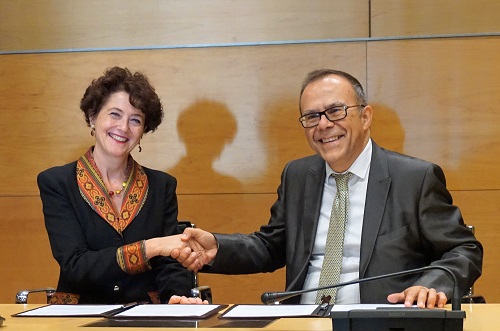
 The European Molecular Biology Laboratory (EMBL) and the Institute for Bioengineering of Catalonia (IBEC) aim to strengthen future collaboration between the two research institutions. With this purpose, IBEC Director’s Josep Samitier and Edith Heard, Director of EMBL, have signed a 5-year agreement at EMBL Barcelona headquarters.
The European Molecular Biology Laboratory (EMBL) and the Institute for Bioengineering of Catalonia (IBEC) aim to strengthen future collaboration between the two research institutions. With this purpose, IBEC Director’s Josep Samitier and Edith Heard, Director of EMBL, have signed a 5-year agreement at EMBL Barcelona headquarters.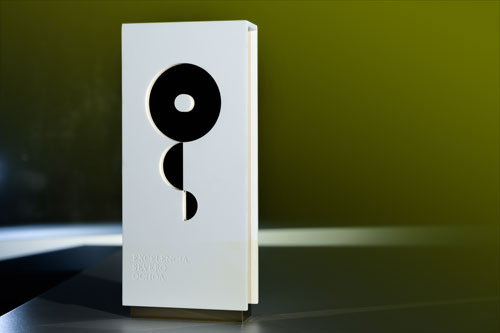

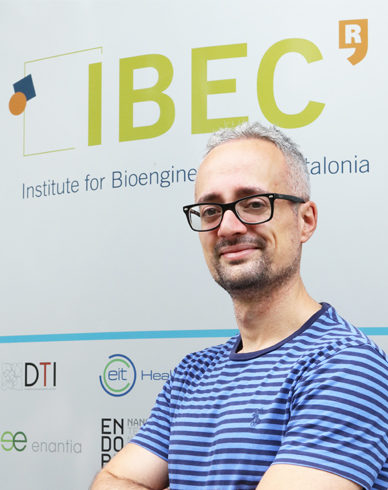
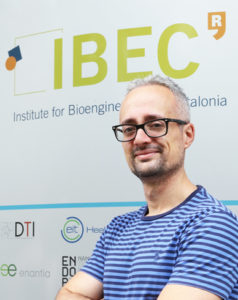
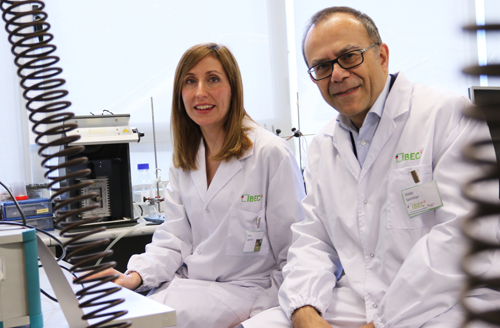
 Collaborating IBEC groups have published a study in Nature Communications that reveals that electron transfer can take place while a protein is approaching its partner site, and not only when the proteins are engaged, as was previously thought.
Collaborating IBEC groups have published a study in Nature Communications that reveals that electron transfer can take place while a protein is approaching its partner site, and not only when the proteins are engaged, as was previously thought. 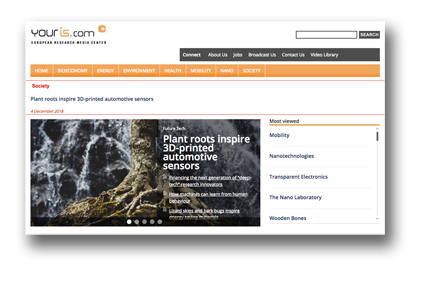
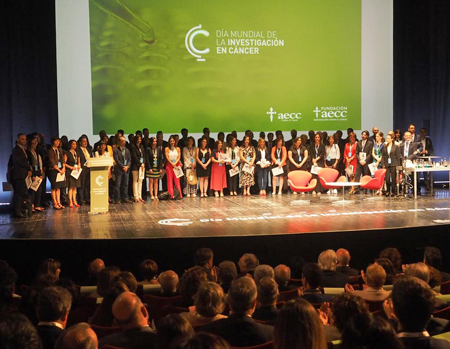
 On Monday IBEC junior group leader Nuria Montserrat and senior researcher Aranzazu Villasante were two of the researchers awarded funding at the Asociación Española de Investigación sobre el Cáncer (AECC)’s ceremony in Madrid.
On Monday IBEC junior group leader Nuria Montserrat and senior researcher Aranzazu Villasante were two of the researchers awarded funding at the Asociación Española de Investigación sobre el Cáncer (AECC)’s ceremony in Madrid.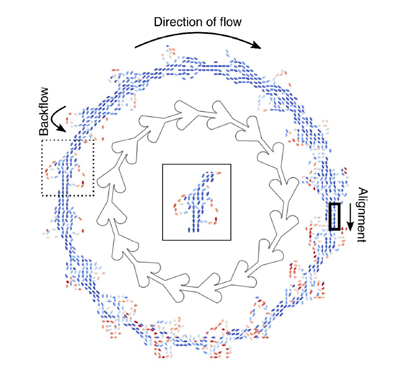
 IBEC’s Smart-Nano-Bio-Devices and Nanobioengineering groups have joined forces to solve the problem of random movement of micro- and nanomotors.
IBEC’s Smart-Nano-Bio-Devices and Nanobioengineering groups have joined forces to solve the problem of random movement of micro- and nanomotors.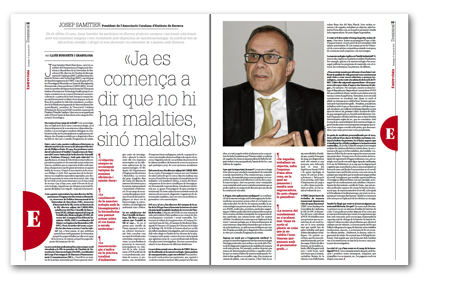
 An interview with IBEC director Josep Samitier in his capacity as the president of ACER appeared in the ‘Dominical’ supplement of the Diari de Girona last week.
An interview with IBEC director Josep Samitier in his capacity as the president of ACER appeared in the ‘Dominical’ supplement of the Diari de Girona last week.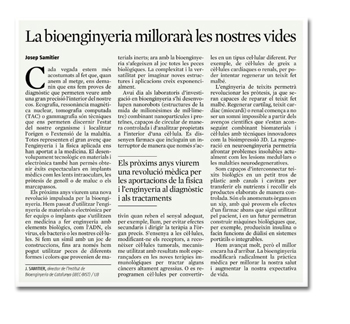
 An article by IBEC director Josep Samitier explaining what bioengineering is and how it can advance health and quality of life appeared in La Vanguardia today.
An article by IBEC director Josep Samitier explaining what bioengineering is and how it can advance health and quality of life appeared in La Vanguardia today.